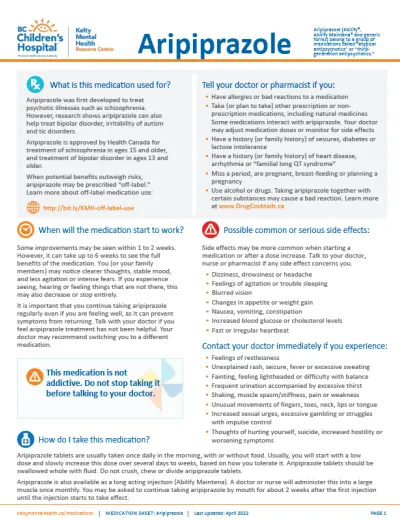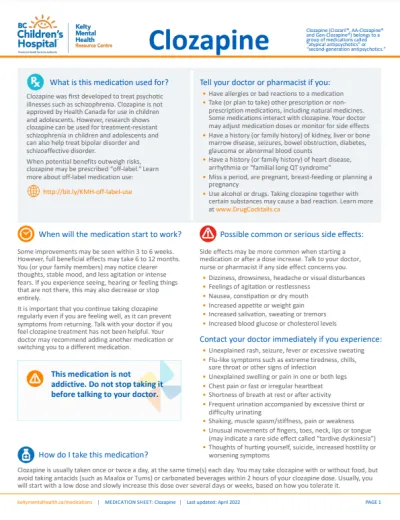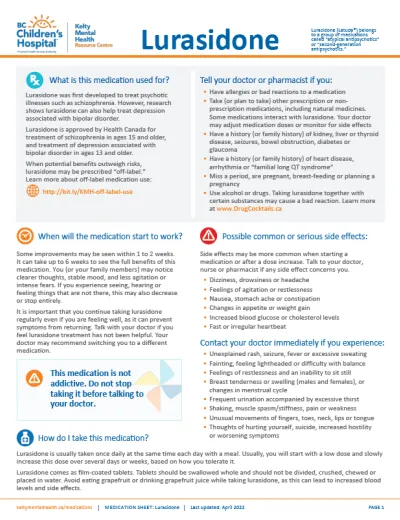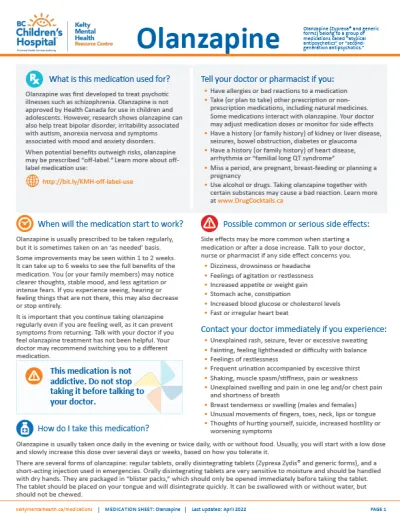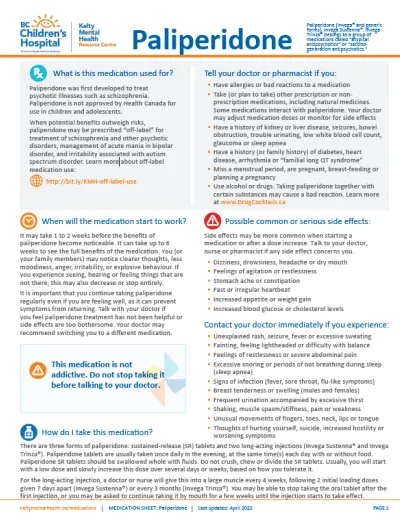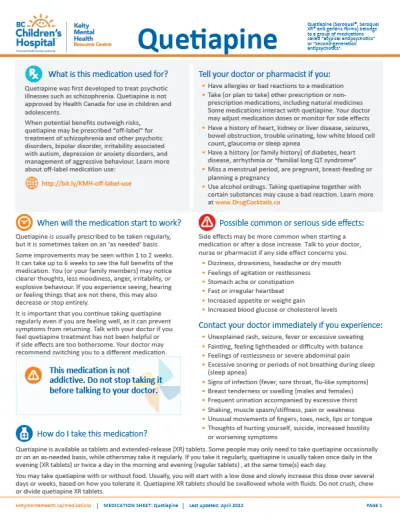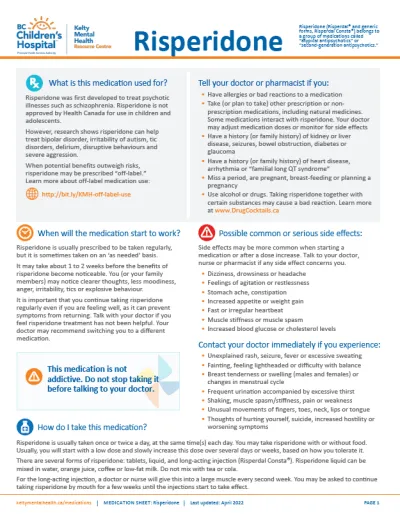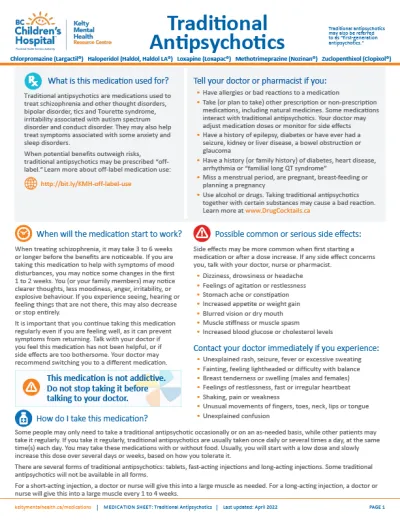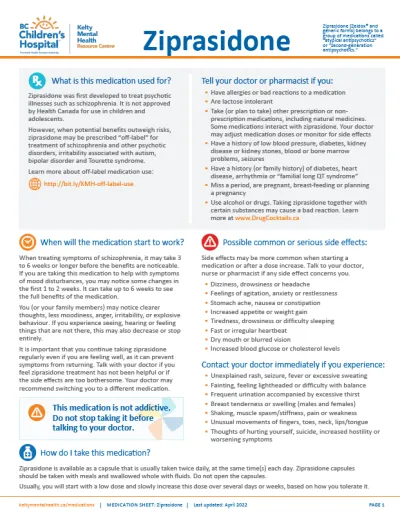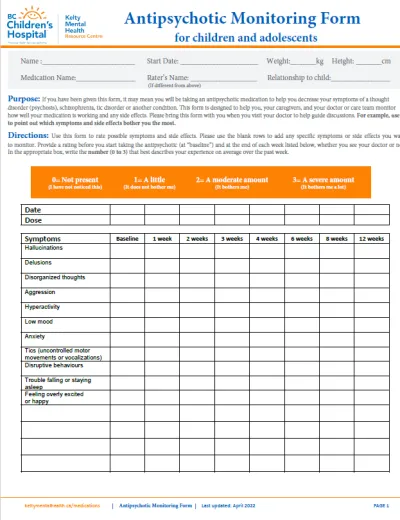Metabolic side effects can sometimes occur in children and youth who are taking second-generation antipsychotic medications (or SGAs). SGAs are a type of medication used to treat several mental health conditions.
Metabolic side effects of SGA medications can include:
- weight gain (especially around the belly)
- high blood sugar
- high blood pressure
- high cholesterol levels
- high triglyceride levels
If three or more of these occur together, this is called metabolic syndrome.
If your child has been put on a second generation antipsychotic, you can find more information in the Patient and Family Guide to Second Generation Antipsychotics.
